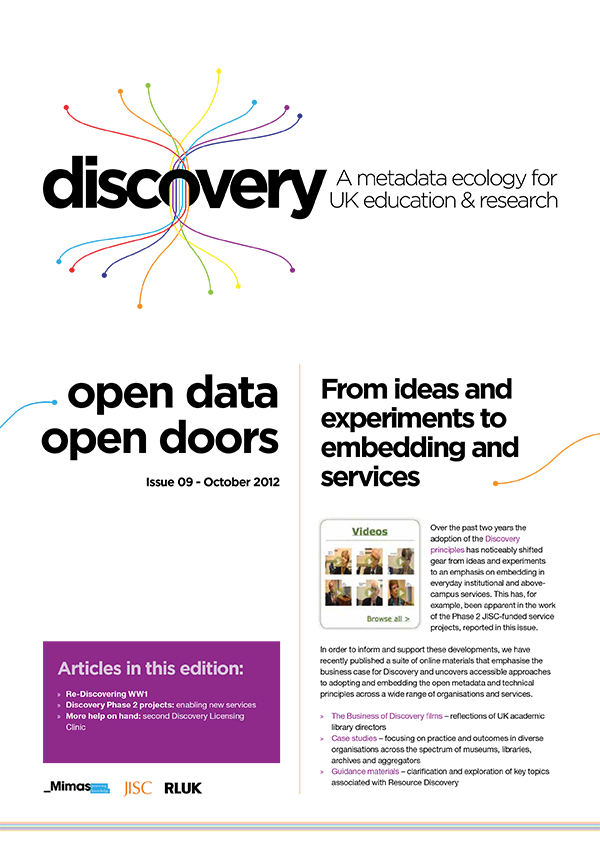Focus on Archives & Museums
From its origins in the Resource Discovery Taskforce (RDTF), Discovery has most readily been associated with the world of libraries — and Higher Education’s libraries in particular. This early focus should perhaps be characterised as an accident of history rather than an explicit intention to narrow scope, and non-library organisations such as the Collections Trust have long been involved.
In June, representatives of the museum and archival communities came together with members of the Discovery team for a day of discussion in search of common ground. At a high level, many of the familiar themes resonated strongly; licensing is an often thorny issue, funding is tight, and there are a plethora of worthwhile initiatives competing for limited attention. For the majority of institutions, the faith-based belief in the value of “open” that drove so many early adopters is proving insufficient. This next wave of potential adopters need to see a business rationale for opening access to data that is clear, robust, and defensible.
In exploring more tangible next steps, discussion frequently turned to the topic of controlled terminologies, thesauri, or name authorities. A small number of key resources from organisations such as the Getty and The National Archives are in widespread use, and there was a shared enthusiasm for exploring ways in which these might be opened up online. Openly available over the web, with every concept or topic assigned a citable and unchanging web identifier, might these resources take their place as pivotal hubs, capable of connecting content from across institutions and domains? The team at Discovery is looking at the best way to proceed, and welcomes comments from the community.

